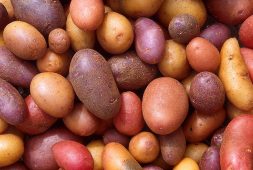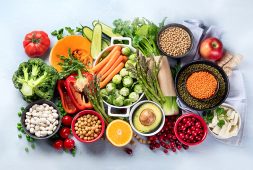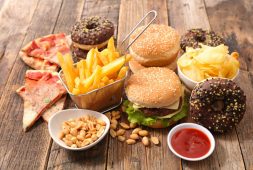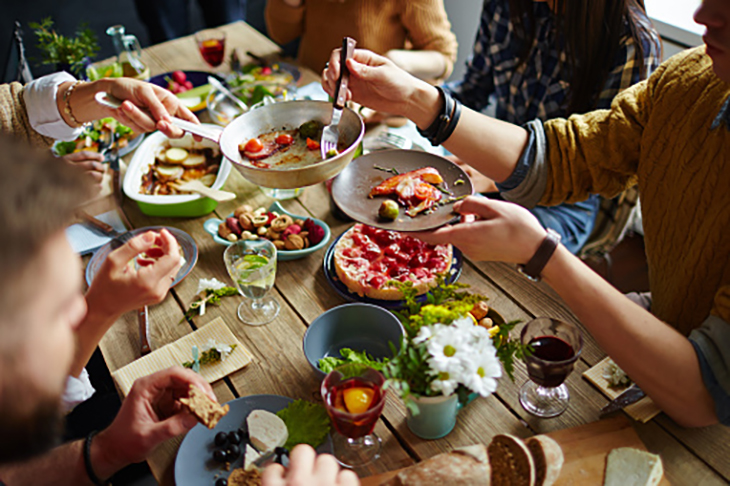
According to experts, there are certain foods that women can consume that may just help them combat breast cancer, the risk, recurrence, and even flares that come with it.
Cancer.Net shares that there are over 3.8 million women within the United States alone that have been diagnosed with breast cancer. If you happen to be one of them, or know someone who has it, you may be thinking about the ways to help keep it under control, aside from just treatment as prescribed from your medical doctor.
And while every diagnosis and case may be different, there are some things that tend to remain the same when dealing with a serious health condition, the fact that it normally needs to be treated by a doctor, as well as through other means such as diet and lifestyle changes.
One major issue though, is that there aren’t enough studies to completely prove just how much of an influence one’s diet is on certain diseases. In fact, since many studies rely solely on a person remembering the food they ate, or how much for that matter, which means that the data isn’t always completely reliable. Yet many doctors will agree that there is evidence that has been found that leads most physicians to agree that a person’s diet is highly influential on their health condition, breast cancer included.
This is why the strongest scientific evidence found between the relationship of breast cancer and food is that ‘a largely plant-based, anti-inflammatory, fish-oriented diet that avoids red meat,’ is probably best, at least according to integrative physician Joe Feuerstein, MD from Stamford, Connecticut. In fact, he happens to counsel many patients that present with a wide variety of ailments, and how they can make the most of their diet to get better health results.
One main question is why do we need to control inflammation when it comes to disease?
Feuerstein explains, “Inflammation is part of the body’s normal healing response to damage. However, as part of this response there is a release of substances in the body that promote cell division, which is not something that is optimal in patients with cancer.”
He goes on to share that when it comes to red meat, it usually contains hormones, such as those that can drive breast cancer growth up, such as endocrine disrupting chemicals, as well as having heme (iron), which is a potentially gene-damaging oxidant. He also adds that when you put red meat on a grill, you happen to add heterocyclic amines, or compounds that are usually associated with higher cancer risk as found in a number of lab studies.
So more importantly, how much difference can a change in your diet actually make?
Feuerstein says, “You won’t eliminate your risk by eating mostly plant-based and anti-inflammatory, but you can try to make the grass of your garden as inhospitable to weeds as possible.’
Take a look at six supermarket picks that Dr. Feuerstein suggests women should add to their diet as a way to lessen their risk of developing breast cancer.
1. Eggs
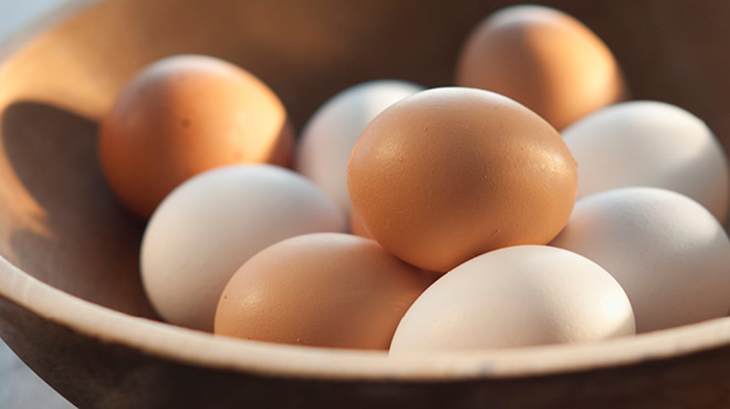
Eggs sometimes get a bad rap due to their cholesterol content, but there are actually many benefits that come from eating eggs. According to Dr. Feuerstein, his recommendation is to eat a few eggs per week since they are not only a good non-meat source of protein, they are also high in lutein, zeaxanthin, and choline, which are all micronutrients that are thought to have disease-fighting properties.
2. Soy
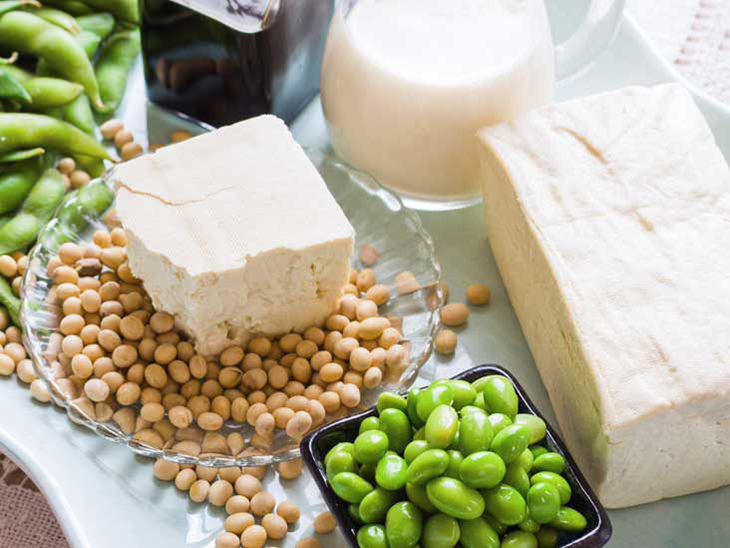
There has been a long history of women with breast cancer being told not to eat soy due to its chemical structure, which is similar to estrogen. But a number of long-range studies have shown that this theory has actually been debunked. According to Feuerstein, “Soy is a nutrient-rich plant protein that contains all nine essential amino acids, which is relatively rare in the plant world. It’s an ideal protein source.” For Feuerstein, he says people should consider soy in its whole food form, like miso, tofu, edamame, and tempeh, rather than soy shakes, soy protein, or supplements. He adds, “There is some concern that the concentration of phytoestrogens in processed soy foods is much higher than those in the natural health food product.”
3. Fish
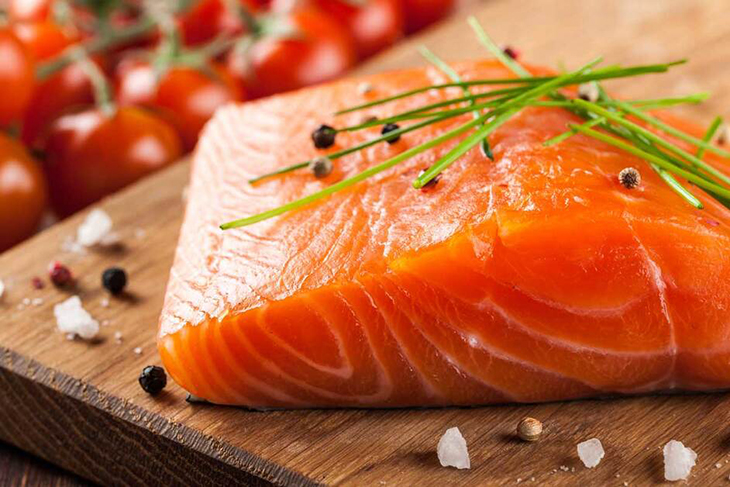
Epidemiological research has found that breast cancer in women from countries where fish is widely eaten is less likely than in countries with a meat-heavy diet, such as those that follow a Western diet. Fish, which is another protein-rich non-red meat source, is known for its anti-inflammatory properties in the form of polyunsaturated fatty acids or PUFAs. In a study on aggressive breast cancer done on mice, scientists found that their exposure to PUFAs lessened the animals’ risk of developing breast cancer throughout their lifetime. Feuerstein shares, “Go with cold-water fatty fish such as tuna — light ‘skipjack’ tuna, not albacore, since the bigger the fish, the more possibility it will have mercury — and sockeye salmon, sardines, herring, and mackerel.”
4. Green Tea
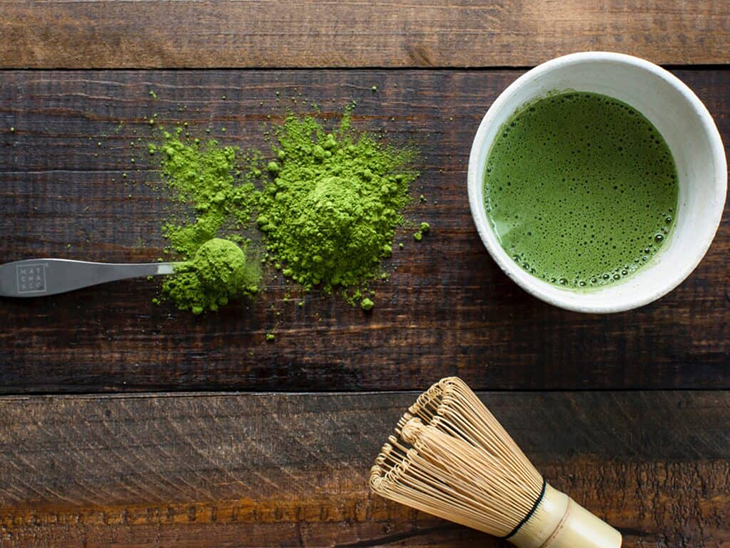
In Asian cultures, green tea has long been touted as a potential super-ingredient since breast cancer tends to be at a much lower risk. But there is still research ongoing to back up these claims. “We’re finding more and more that there are major antioxidant effects in green tea,” explains Feuerstein. Since antioxidants aid in the prevention of cell damage from free radicals that occur due to normal metabolism which can actually cause genetic damage to cells, which can lead to cancer. Feuerstein adds, “The polyphenol compounds in the leaves work as antioxidants and detoxify cell-damaging free radicals.” Other research suggests that polyphenols in green tea may even lessen the estrogen’s activity level, slowing down breast cancer growth. In fact, Feuerstein even shares that there was a 25 percent reduction in breast cancer recurrence in Asian women who drank green tea.
5. Cruciferous Vegetables
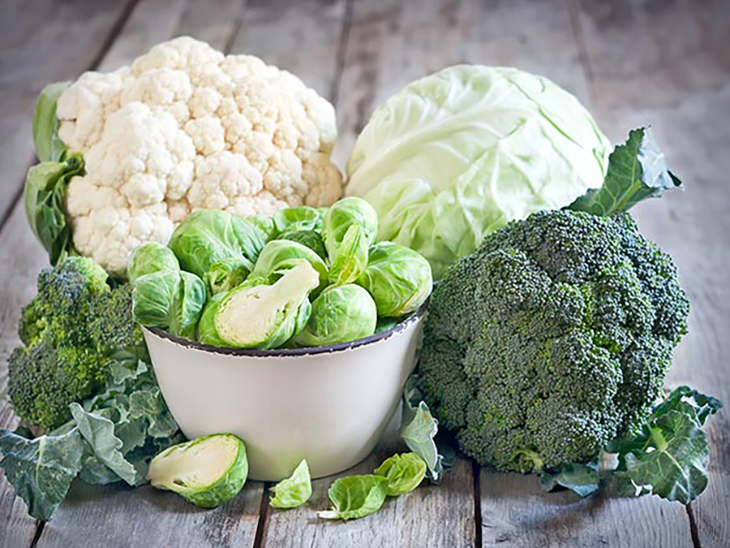
Cruciferous vegetables include bok choy, collard greens, Brussels sprouts, arugula, cauliflower, kale and broccoli. While this vegetable family is high in calcium and two types of compounds – indoles and isothiocyanate – which have been studied for their cancer-fighting properties. Moreover, studies in animals have been more conclusive than those done in humans, yet Feuerstein recommends that women eat them since, “they contain compounds called indole-3-carbinols, which contribute to the detoxification of excess estrogen,” which is the hormone known to fuel breast cancer growth. He adds, “Consider them your friends.”
6. Yogurt
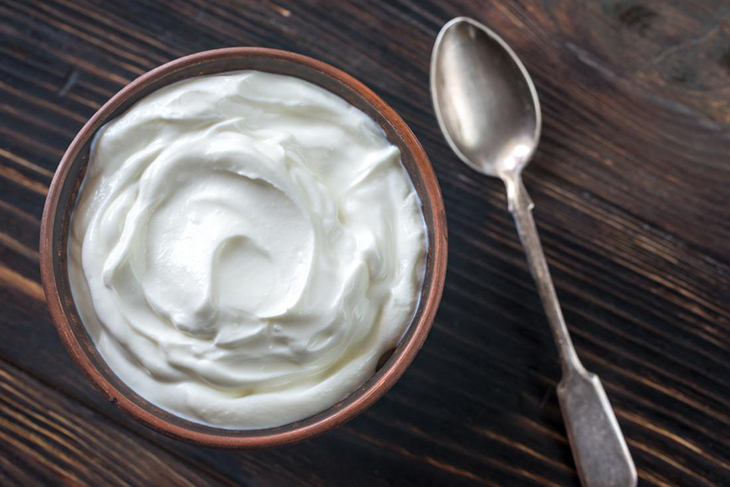
According to a study that was published in the International Journal of Epidemiology back in 2020, it shares that just a quarter or 1/3 cup of dairy milk was found to increase the risk of breast cancer by 30 percent. One main reason for this is due to the “sex hormone” found in dairy milk, since cows are lactating or pregnant. But regardless, Feuerstein explains that the good outweighs the bad since it’s a great source of protein and calcium. “Yogurt also contains beneficial bacteria, such as probiotics that may lessen inflammation and lower breast cancer risk.” Moreover, he also shares his affinity for fermented nut yogurt such as cultured cashew yogurt mixed with flaxseed and berries.

